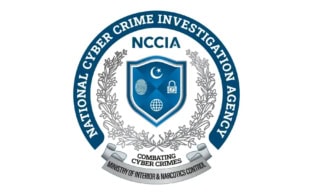Pakistan Set to Regulate Cryptocurrency with Virtual Assets Bill 2025: Sources

The Senate of Pakistan is considering the Virtual Assets Bill 2025, a groundbreaking legislative proposal introduced by Senator Dr. Afnan Ullah Khan. This private member’s bill seeks to establish a robust regulatory framework for virtual assets, encompassing cryptocurrencies and blockchain technologies, to ensure their responsible and secure integration into the country’s financial and technological landscape.
One of the key highlights of the bill is the launch of a Digital Rupee, a virtual currency backed by the Pakistani Rupee (PKR) and governed under the central bank’s regulations. The bill seeks to oversee the issuance, trading, and utilization of virtual assets while ensuring financial stability, protecting investors, and preventing illegal activities.
The bill also suggests establishing virtual asset zones aimed at promoting innovation and growth within the industry. With the introduction of this legislation, Pakistan seeks to establish itself as a progressive nation that is adopting digital finance, all while protecting its economic and legal interests.
The legislation outlines comprehensive guidelines and standards for the registration and licensing of digital currency zones, exchanges, and asset providers. This Act has established mandatory adherence to regulations concerning the prevention of money laundering and the financing of terrorism.
Moreover, it promotes clarity in the digital currency landscape by facilitating routine evaluations and disclosures from organizations engaged in the management and exchange of virtual assets, thereby nurturing and sustaining confidence and responsibility within Pakistan’s financial framework.
National Virtual Assets Regulatory Commission
If passed, the government will establish a National Virtual Assets Regulatory Commission to carry out the purposes of this Bill. The commission will help to:
- Guarantee the registration and licensing of digital asset zones, cryptocurrency exchanges, and digital asset service providers nationwide
- Establish a legal and regulatory framework for the management and oversight of virtual assets within the nation
- Understand the effectiveness, risks, and vulnerabilities associated with virtual assets
- Supervise and coordinate the operations related to the functioning of digital asset zones within the nation
- Monitor the issuance and upkeep of virtual assets backed by the Pakistani rupee
- Evaluate and review transactions and operations involving digital assets
- Set, manage, and maintain standards for combating money laundering and countering terrorism financing within the realm of virtual asset enterprises; to comprehend the clientele, through their behaviors and intentions, engaged in the trading of virtual assets as participants or intermediaries; and to enforce regulations and apply sanctions for violations.
Virtual Assets Zones
The federal government or provincial government will identify and designate specific regions. Regions with abandoned, idle, or underutilized power plants that have the potential to generate surplus electricity through renewable energy will be prioritized.
The commission is tasked with overseeing a register of licenses pertaining to virtual assets zones. This register will encompass applications for licenses submitted, enforcement orders associated with issued licenses, and details regarding any revoked licenses. The register will be open to the public for inspection and lodging complaints.
License Requirements for Virtual Currency Exchanges and Virtual Assets Service Providers
The Commission, after consulting with the relevant Ministries and their associated departments, will grant licenses to all virtual currency exchanges and Virtual Assets Service Providers operating within the nation.
Applicants must provide proof of business registration, demonstrate financial stability, detail measures for AML/CTF compliance, and outline cybersecurity protocols to the Commission.
Tax Incentives
The Government is set to implement the following measures:
- Apply reduced corporate tax rates on specified virtual asset zones for an initial period of five years, contingent upon meeting AML/CTF compliance requirements.
- Mandate that virtual currency exchanges and service providers comply with AML/CTF obligations, which encompass customer due diligence (CDD) and the reporting of suspicious activities.
- Guarantee that organizations keep transaction logs and customer identification information for at least five years.
- The Government is set to entice foreign investors by offering a three-year tax exemption for those who contribute to local blockchain development projects or power plants.
- The Government plans to designate a significant portion of the revenue derived from virtual assets operations towards enhancing local infrastructure and advancing education initiatives related to blockchain technology.
If approved, the Virtual Assets Bill 2025 could mark a significant step toward fostering a secure, transparent, and innovative digital economy in Pakistan. This move reflects the country’s efforts to address the challenges and opportunities presented by emerging technologies.

Pakistan’s premier website covering everything about Technology, Startups and Entrepreneurship! Email: [email protected]


 4 min read
4 min read
















